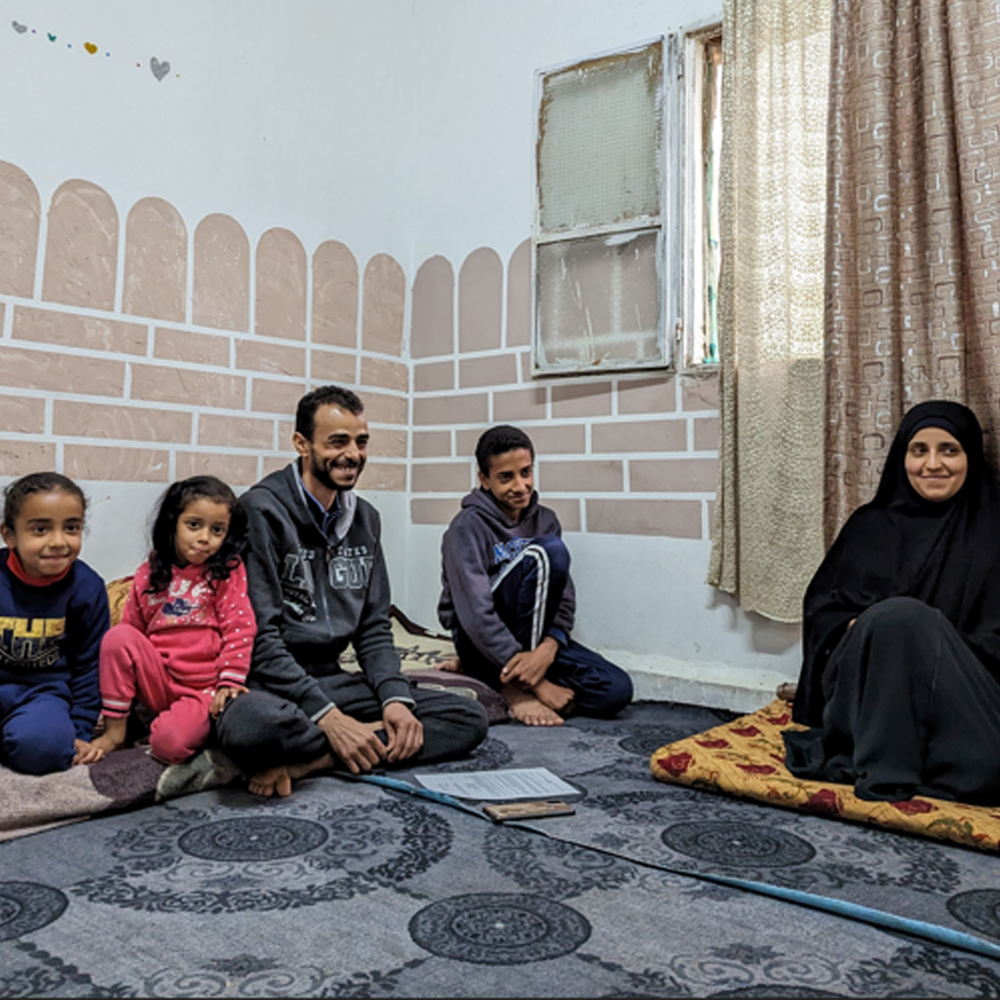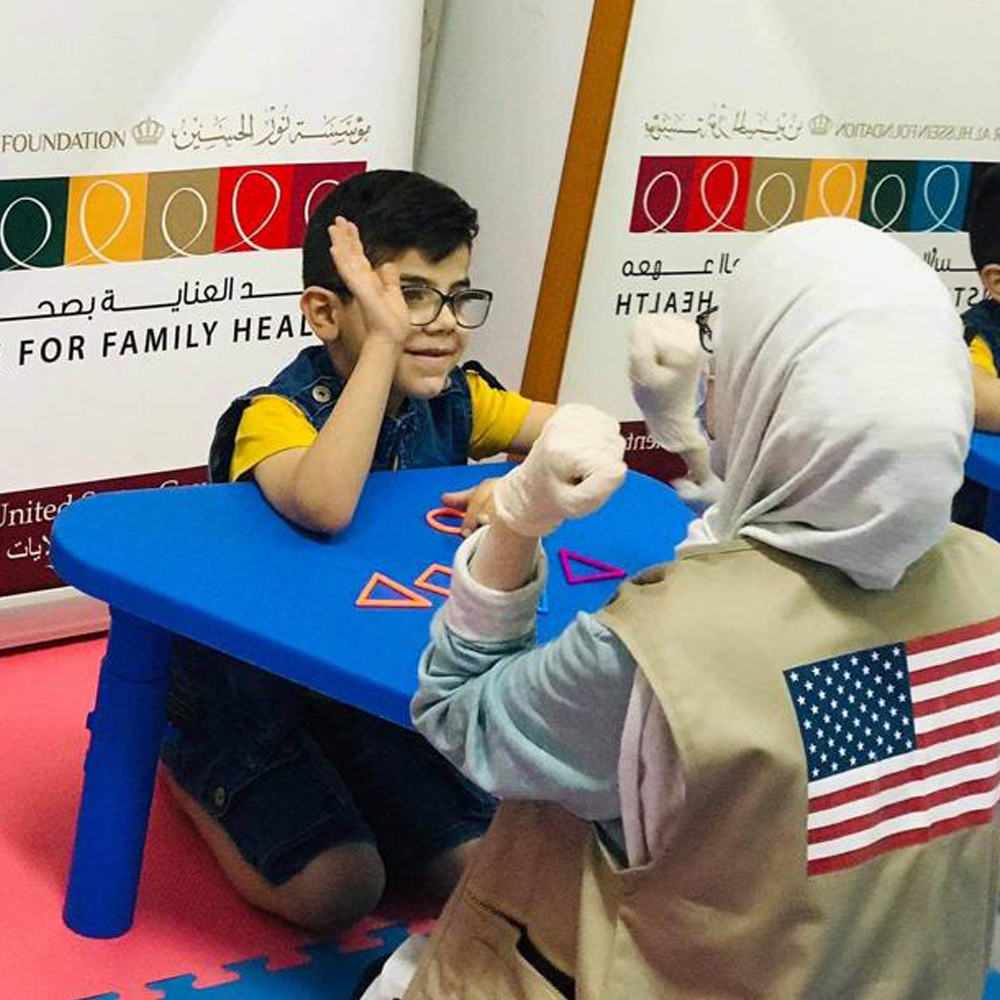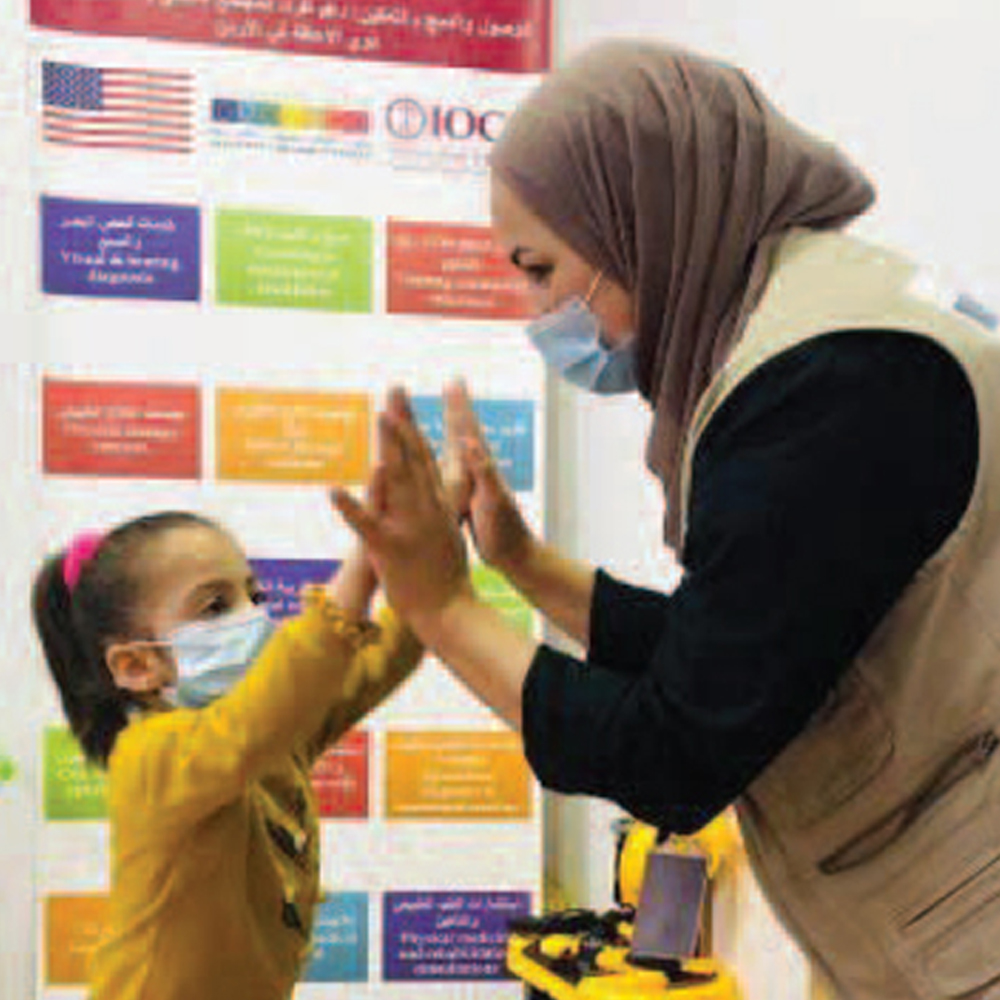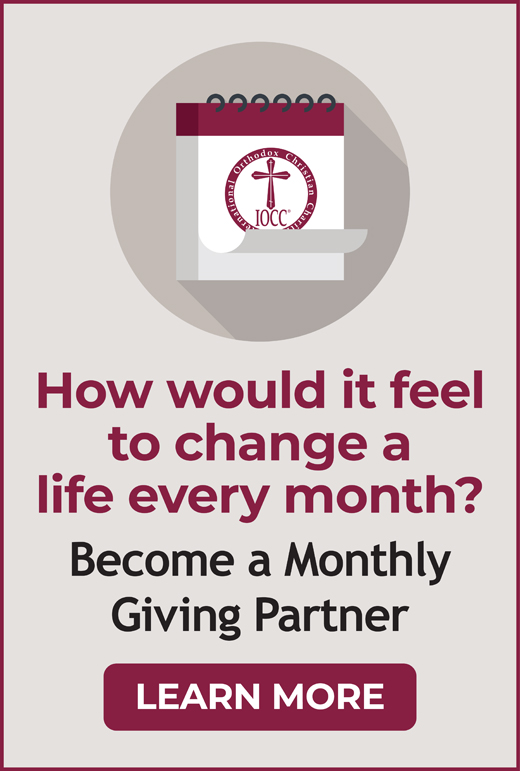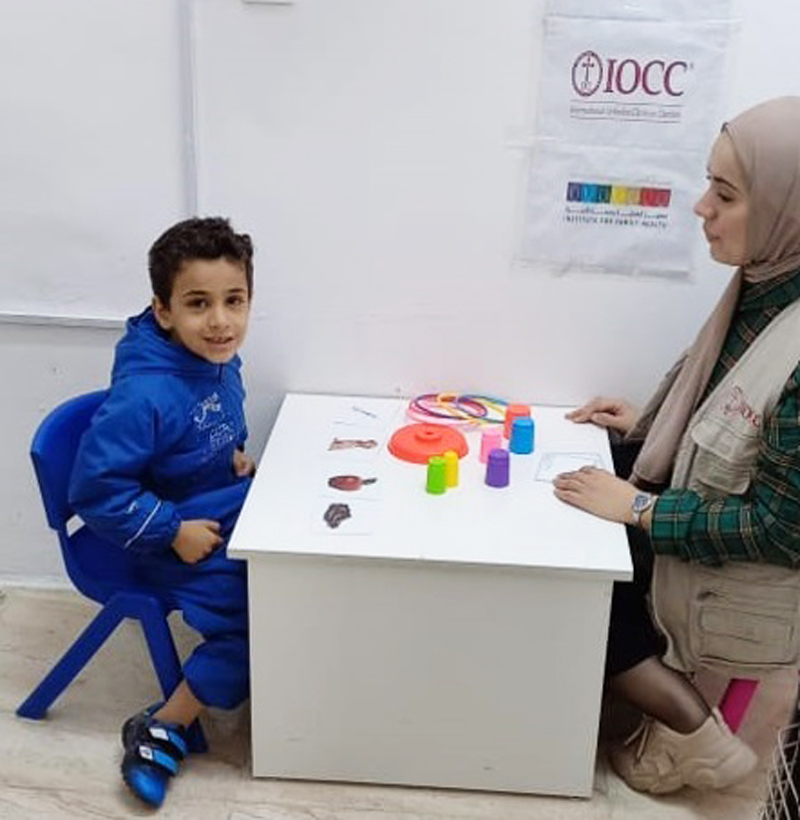
Can you imagine wanting to say a word, but being unable to form the sounds correctly?
Five-year-old Jordanian Fadi (not his real name) has apraxia of speech, and his challenges communicating left him isolated and frustrated. Despite two years of therapy at private centers in Amman, Jordan, he’d made no progress; he still had trouble imitating words, and his speech was unintelligible. Then Fadi’s father discovered an IOCC program with the Institute for Family Health supported by the Austrian Development Association and Diakonie ACT Austria. The program offered fresh hope.
After enrolling Fadi in speech and language assessments, the team completed articulation tests with him. Initially resistant to therapy, Fadi also received support from the psychosocial team. Additionally, an audiology clinic assessed his hearing.
Fadi has made remarkable strides. “Fadi used to cry [and] shout to express his needs, and he didn’t know how to play with his brothers,” his mother told staff. But now, she said, Fadi can form long words and sentences.
This progress depended on consistent home practice, and the boy’s mother attended therapy sessions and worked with him diligently. He also received glasses earlier this year, improving his vision and boosting his self-confidence—and accelerating his progress in speech therapy.
Family and teachers have all noticed Fadi’s improved speech, confidence, and self-esteem. He’s now more actively engaged in activities at school and at home, asking and answering questions effectively, and clearly expressing his emotions. Fadi’s transformation exemplifies how IOCC’s work equips people to shape positive changes in their lives.


